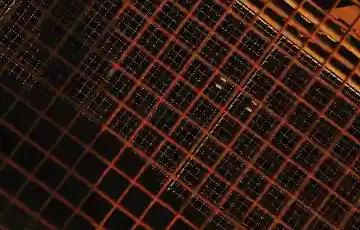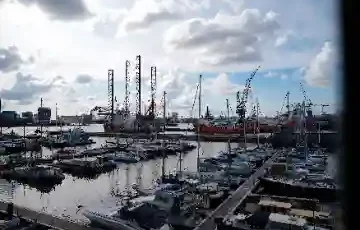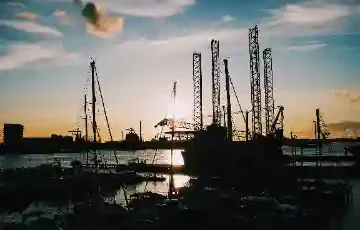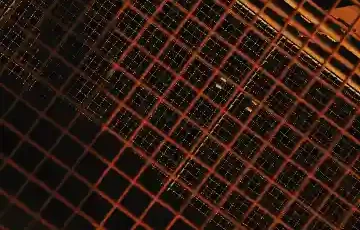Dutch waste regulations fall under various laws with the Environmental Management Act as the cornerstone, supplemented by implementation decrees and the recent Dutch Environment Act and Dutch Planning Act that entered into force on January 1, 2024. Waste management entrepreneurs must comply with permit requirements, storage periods and financial security provisions, where compliance directly impacts business operations and enforcement.
The waste processing industry in the Netherlands operates within a complex legal framework that continuously evolves. Dutch companies process tens of billions of kilograms of waste annually, where regulations steer the transition toward a circular economy. Legal frameworks determine when waste materials lose their waste status and enable reuse according to the “Waste equals Food” principle. Compliance with these regulations directly affects operational continuity, with enforcement authorities conducting regular inspections across 85% of registered waste facilities.
What are the core laws governing waste processing under Dutch law?
The legal framework for waste processing rests on the Environmental Management Act, the Packaging and Paper and Metals Management Decree, and since 2024 the Environment and Planning Act. This legislation regulates permit obligations, processing methods and storage periods for different waste streams.
According to Article 10.37 of the Environmental Management Act, a basic storage period of maximum one year applies for waste destined for incineration or landfilling. For waste designated for recycling, an extended period of up to three years applies. Exceeding these limits results in enforcement action by competent authorities, whereby municipalities and provinces jointly oversee 38% of Dutch households under differentiated tariff systems based on residual waste production.
The Environment and Planning Act integrates existing regulations into one uniform system. The Building Works Living Environment Decree thereby replaces the former Mobile Breaking of Construction and Demolition Waste Decree, changing procedures for mobile crushing installations. This consolidation practically impacts all waste processing companies in sectors such as construction, demolition, metal and scrap. Companies processing construction waste must now submit digital notifications through the national DSO portal, streamlining permit applications that previously took 16-20 weeks down to 8-12 weeks on average.
Dutch waste legislation distinguishes these categories with specific legal requirements:
- Hazardous waste with mandatory notification obligations
- Commercial waste with separate collection requirements above specified quantities
- Construction and demolition waste with separation percentages per material stream
- Electronic waste under WEEE directive with take-back obligations
- Packaging waste with producer responsibility
What permit requirements apply to waste companies in the Netherlands?
Waste companies require an environmental permit for establishing and operating facilities. Additionally, since the Environment and Planning Act implementation, financial security provisions apply to cover societal risks when companies cannot fulfill obligations.
The competent authority determines per situation whether financial security is necessary. This reintroduction ensures that damage risks arising from activities are covered. Entrepreneurs must account for local enforcement installations by municipal environmental services alongside provincial supervisors. For waste facilities processing over 10,000 tonnes annually, mandatory financial security typically ranges from €50,000 to €500,000 depending on waste category and processing volume.
Permit procedures for waste processing companies encompass multiple aspects:
- Environmental hygiene standards according to Activities Decree
- Air quality requirements and noise standards
- Soil protection provisions
- Energy efficiency requirements
- Safety requirements for hazardous waste substances
A practice example: a recycling company in Amsterdam wanted to expand with a sorting hall for construction and demolition waste. The procedure required additional noise measurements, a dust emission study and adapted storage facilities. The entire permit trajectory including objection procedures took 18 months before exploitation could start. Legal fees totaled €35,000, with additional engineering costs of €22,000 for technical documentation.
Do you need certainty about compliance with waste regulations for your business? Specialized lawyers in environmental law analyze your situation, advise on permit requirements and guide permit procedures throughout the Netherlands.
How does end-of-waste determination work in the Dutch jurisdiction?
A waste material loses its waste status when it meets European end-of-waste criteria and the producer demonstrates that the substance serves a specific purpose, complies with technical requirements, and has a market without harmful environmental or health effects.
The burden of proof lies with the producer, not with the competent authority. Legally, this means entrepreneurs must proactively demonstrate their product is no longer waste. For recycling companies, this determination forms a critical threshold toward circular economy, whereby materials retain their value. The end-of-waste assessment requires comprehensive documentation including technical specifications, quality controls and market analysis demonstrating genuine demand for the recovered material.
Dutch case law shows that competent authorities judge end-of-waste conservatively. Applications for formal determination via legal judgment from the competent authority offer certainty for business processes. However, this legal judgment only binds the applicant, limiting market-wide applicability without sectoral regulations. Companies successfully demonstrating end-of-waste status report average cost savings of 40% through avoided waste processing levies and expanded market access to industrial buyers.
Dutch authorities recognize end-of-waste status for these materials when meeting strict criteria:
- Metal scrap meeting purity standards (95%+ single-metal content)
- Glass cullet with controlled composition for container production
- Compost from source-separated organic waste meeting quality standards
- Paper and cardboard meeting fiber quality specifications
- Aggregates from construction waste meeting building material standards
What regulations apply to specific waste streams according to Dutch legislation?
Different waste streams have specific provisions: organic waste requires separate collection according to municipal ordinances, while construction and demolition waste falls under the Building Works Living Environment Decree with provisions for mobile crushing and maximum dust emission.
Recycling of plastic, metal packaging and beverage cartons (PMD waste) occurs via source separation or post-separation. With source separation, consumers deliver PMD separately, while post-separation means waste processors extract PMD from residual waste. Source separation reduces attached contamination by approximately 15%, making more plastic suitable for high-quality recycling. Dutch municipalities implementing source separation report polymer purity rates of 92% compared to 78% for post-separation facilities.
Dutch regulations distinguish hazardous waste with specific reporting obligations, requiring detailed documentation under Article 10.37 Environmental Management Act. Companies handling hazardous waste exceeding 50 kilograms annually must register with the competent authority and maintain comprehensive waste administration. Non-compliance results in administrative fines starting at €10,000, with escalation to €50,000 for repeat violations within three years.
For metal recycling, regulations under the Environment and Planning Act connect storage provisions to fire safety and soil quality. Companies process millions of tonnes of metal scrap annually, whereby legal compliance has direct influence on operational continuity. Metal recyclers must implement containment systems preventing soil contamination, with quarterly groundwater monitoring requirements for facilities processing over 5,000 tonnes annually.
What enforcement instruments exist for violations under Netherlands law?
Competent authorities possess administrative enforcement powers, penalty orders and administrative fines. Criminal prosecution occurs for serious violations where environmental pollution occurs or illegal waste transports take place.
Violations result in escalating enforcement actions. Municipalities and provinces apply enforcement via VTH frameworks (Licensing, Supervision and Enforcement). Upon detection of storage period exceedance, warning follows first, then formal notice with remediation period. Failure to comply leads to penalty payments up to maximum €50,000 or actual removal at violator’s expense. Enforcement statistics show that 68% of notices result in voluntary compliance within the remediation period, avoiding penalty proceedings.
Serious violations such as illegal dumping or incineration of waste without permit lead to criminal prosecution. The Public Prosecution Service actively prosecutes environmental crimes, whereby convictions in 75% of cases result in conditional or unconditional prison sentences alongside fines. Criminal penalties for illegal waste disposal range from €20,000 for first-time offenders to €100,000 plus imprisonment up to two years for organized illegal waste trafficking.
A company in the recycling sector received a penalty of €25,000 for exceeding the three-year storage period for metal scrap. Legal assistance led to renewed permit application with additional storage capacity, whereby enforcement was suspended under conditions. The company installed new inventory management systems tracking storage duration digitally, preventing future violations and demonstrating compliance improvements to authorities.
How does the SUP Directive influence Dutch waste legislation?
The European Single Use Plastics directive prohibits disposable plastics such as straws and plates since July 2021. From 2023, payment obligation applies for plastic disposable packaging in catering and delivery services, whereby providers must offer reusable alternatives.
This regulation integrates into Dutch legislation via the Disposable Plastic Products Decree. Catering entrepreneurs and delivery services must offer reusable options at equivalent prices. From July 2024, this regulation mandates that caps remain attached to plastic bottles, reducing litter by 70 to 90% according to expert estimates. Compliance monitoring occurs through municipal inspections, with first-time violations resulting in warnings and subsequent violations incurring fines starting at €4,500 per establishment.
Bio-based, compostable and biodegradable plastics also fall under the SUP directive. Although these plastics originate from natural raw materials, they do not break down under natural conditions. Legally, the same restrictions apply as for conventional plastics. Testing shows that bio-plastics require industrial composting facilities reaching temperatures of 55-60°C to degrade properly, conditions rarely met in natural environments or home composting systems.
The SUP directive impacts these sectors significantly:
- Catering industry requiring reusable cup and container systems
- Event organizers needing biodegradable alternatives for food service
- Retail businesses selling prohibited single-use items
- Food delivery platforms adapting packaging standards
- Manufacturers reformulating products to eliminate problematic plastics
What role does the Circular Materials Plan play in future regulations in the Netherlands?
The Circular Materials Plan (CMP) replaces the National Waste Management Plan (LAP3) in 2025 and steers Dutch waste policy toward circular economy with ambition to position the Netherlands as Europe’s ‘raw materials roundabout’.
The draft CMP was open for public consultation from January to February 2025. This plan integrates waste prevention, recycling targets and quality requirements for secondary raw materials. Significant changes concern tightening of processing requirements and stimulation of high-quality recycling above incineration or landfilling. The CMP sets binding targets including 65% municipal waste recycling by 2025 and 75% packaging waste recycling by 2030, requiring substantial operational adjustments across the waste processing sector.
For waste companies, the CMP means:
- Tightened quality requirements for recycled materials
- New definitions for waste separation obligations
- Adjusted standardization for end-of-waste per material stream
- Incentive schemes for innovative recycling techniques
- Stricter enforcement on waste export outside EU
The Dutch government aims for complete circularity by 2050. The CMP forms the legal framework whereby entrepreneurs participate in chain collaboration and innovation. Legal advisory helps companies ensure compliance while developing circular business models. Companies proactively adapting to CMP requirements report competitive advantages, including preferential access to government procurement contracts worth €3.2 billion annually for waste and materials management services.
What are the legal aspects of source versus post-separation according to Dutch law?
Source separation requires consumers to deliver PMD waste separately, while post-separation means waste processors extract PMD from residual waste. Legally, municipal waste ordinances determine which system applies, influencing waste levy and processing costs.
Municipalities choose their collection system within national frameworks. Source separation results in cleaner separated waste with 15-20% less contamination, achieving higher recycling percentages. Post-separation reduces collection costs but requires advanced sorting installations. Polymer purity is marginally better with post-separation, but source separation delivers more suitable streams for high-quality recycling. Economic analysis shows source separation systems cost municipalities €45-60 per tonne compared to €55-75 per tonne for post-separation when including full lifecycle costs.
Legal aspects include:
- Municipal authority for determining collection method
- Waste levy linked to chosen system
- Enforcement powers for incorrect separation
- Liability for contaminated waste streams
- Contractual agreements between municipalities and collectors
Differentiated tariff systems link waste levy to produced residual waste via volume, weight or delivery frequency. Municipalities with differentiated systems report on average 30% less residual waste per household, resulting in lower processing costs and levies. The disadvantage involves increased illegal dumping, raising enforcement costs. However, comprehensive studies show net cost savings of 18-22% for municipalities implementing differentiated systems with active enforcement and public education campaigns.
Do you have questions about storage periods, permit obligations or enforcement within waste regulations? Contact specialized lawyers in environmental law for legal advice about your specific situation and proactive compliance strategies.
How do storage periods work under the Environment and Planning Act?
The Environment and Planning Act maintains existing storage periods of maximum one year for waste destined for incineration or landfilling, and three years for recycling waste. The competent authority can extend periods via environmental permit under specific conditions.
These periods ensure waste is processed timely and unlimited storage risks do not arise. Legally, storage duration differs per processing purpose, whereby recycling justifies longer storage due to market fluctuations and minimum processing quantities. Extension requests require comprehensive documentation including detailed waste characterization, processing contracts and technical storage specifications meeting environmental protection standards.
The competent authority assesses extension requests on:
- Concrete processing plans with contractual agreements
- Financial security for processing costs
- Environmental hygiene justification for storage method
- Market circumstances justify longer storage
- No disproportionate risks for surroundings
A practical situation: a demolition company collected concrete rubble for recycling into concrete aggregate. Market conditions delayed uptake, threatening to exceed the three-year storage period. Via environmental permit, the company obtained extension to four years under condition of additional dust control and quarterly reports to municipality. Additional costs included €8,500 for extended permit procedures and €12,000 annually for enhanced monitoring systems demonstrating compliance with extended storage conditions.
Dutch authorities grant storage extensions in approximately 35% of applications, with highest approval rates for metal and construction waste demonstrating active market engagement and concrete processing arrangements. Rejected applications typically lack sufficient evidence of genuine recycling intent or adequate environmental protection measures during extended storage.
What regulations govern export of waste materials in Dutch law?
Export of waste materials falls under European Regulation (EC) 1013/2006 on shipment of waste and requires notification to competent authorities. For hazardous waste and certain non-hazardous streams, stricter procedures with prior consent apply.
Dutch entrepreneurs export millions of tonnes of waste annually for processing, primarily to Germany, Belgium and Scandinavian countries. Export outside EU requires additional permits whereby destination country must possess adequate processing capacity according to international treaties. Article 18 of Regulation 1013/2006 mandates that exporting facilities demonstrate receiving facilities meet equivalent environmental standards as required within EU, verified through independent audits.
Legal steps for waste export include:
- Classification of waste stream according to European Waste List
- Notification via digital Notification system
- Approval from authorities of transit and destination countries
- Financial security for return in case of rejection
- Proof of environmentally sound processing
Illegal export results in criminal prosecution whereby entrepreneurs remain liable for return costs and environmental restoration. Enforcement occurs via Netherlands Food and Consumer Product Safety Authority (NVWA) and Human Environment and Transport Inspectorate (ILT) with border controls on waste streams. Detection rates for illegal exports have increased 40% since implementation of enhanced electronic tracking systems in 2023, with authorities conducting approximately 12,000 physical inspections annually at Dutch borders and ports.
A recycling company exported plastic waste to Asia without correct notification. Customs intercepted the shipment, resulting in administrative fine of €45,000 plus all return costs recoverable from exporter. Legal procedures delayed business operations by six months and damaged the company’s reputation, resulting in loss of three major municipal contracts worth €180,000 annually. Subsequently, the company implemented comprehensive compliance management systems including automated notification procedures and staff training programs.
What are the legal aspects of microplastics in waste processing according to Dutch legislation?
Dutch legislation prohibits microplastics in certain cosmetic products since 2021 via implementation of the SUP directive. For waste processing companies, provisions apply to prevent microplastic emissions during recycling processes, especially with plastic processing and composting.
Microplastics are plastic particles smaller than 5 millimeters released through wear, disintegration or as deliberate addition in products. Substantial quantities of microplastics enter Dutch environment annually via wastewater treatment, agriculture and litter. Waste processing companies bear responsibility for prevention during sorting and processing operations. Recent measurements show that mechanical plastic recycling facilities emit 2-4 grams of microplastics per tonne processed without adequate emission controls.
Legal obligations include:
- Emission-limiting provisions for plastic processing
- Quality requirements for compost with maximum plastic concentrations
- Discharge permits with standards for microplastic levels
- Monitoring and reporting of emissions
- Preventive measures according to best available techniques
Scientific research shows microplastics present in human blood, lungs and placenta. Although health effects remain under investigation, legal regulations follow the precautionary principle whereby emissions are preventively limited. RIVM monitors health risks, making future tightening of standards expected. Current standards limit microplastics in compost to maximum 0.5% by dry weight, with proposals to reduce this to 0.1% by 2026 based on emerging health evidence.
How do procurement procedures relate to waste processing in the Netherlands?
Government contracts for waste processing fall under procurement law, whereby European threshold values determine whether national or European procedures apply. Municipalities and provinces annually award billions of euros for waste collection and processing via public procedures.
Procurement trajectories for waste processing include complex EMVI criteria (Economically Most Advantageous Tender) whereby besides price, sustainability, recycling percentages and social aspects weigh in. Legal disputes over award decisions occur regularly, whereby legal protection via preliminary relief is urgent given short objection periods. In 2024, approximately 18% of major waste processing contracts (value exceeding €1 million) faced legal challenges, with courts ruling in favor of challengers in 35% of cases.
Practical considerations for tenders:
- Verification of suitability requirements such as permits and certifications
- Realistic pricing within market-conform ranges
- Substantiation of sustainability ambitions with concrete measures
- Compliance with labor conditions and collective agreement obligations
- Financial guarantees via bank guarantees
A waste processing company won tender for municipal organic waste collection but received rejection due to insufficiently substantiated sustainability criteria. Legal proceedings at district court led to revision of award decision whereby contract was ultimately assigned under adjusted conditions. Total procedure took four months with substantial legal costs of €42,000. The company subsequently developed standardized tender response templates incorporating comprehensive sustainability documentation, improving success rates in future procurement procedures from 25% to 65%.
What employment law aspects are relevant for waste companies under Dutch law?
Waste processing companies fall under various collective agreements depending on specific activities: Waste Management CLA, Metal Recycling CLA or Construction CLA for demolition work. Employers must apply correct collective agreement with associated employment conditions, pension premiums and training obligations.
Legal disputes regularly arise over applicable collective agreement with mixed forms of activities. Metal recycling companies with waste transport fall under different regulations depending on main activity. Incorrect collective agreement application results in back payments over multiple years with substantial financial consequences. In 2023, labor inspections resulted in back payments averaging €85,000 per company where incorrect collective agreement application was detected.
Employment law considerations include:
- Occupational health and safety obligations for hazardous substances and machinery
- Training obligations for certificate-required positions
- Working hours regulations for 24/7 operations
- Secondment regulations for deployment of flexible workers
- Pension accrual via industry pension funds
Enforcement occurs via Labor Inspectorate SZW with focus on working conditions in high-risk sectors. Violations lead to fines whereby recidivism has multiplication factors up to maximum 300%. Employers risk co-liability when deploying subcontractors violating labor rules. Recent enforcement campaigns in the waste sector resulted in fines totaling €3.8 million across 145 inspected companies, with violations detected in 42% of inspections.
The Dutch waste processing sector counts approximately 7,500 companies with collectively 45,000 employees. Employment law compliance forms essential part of business operations whereby legal advisory is preventively deployable for collective agreement interpretation, reorganizations and labor conflicts. Companies implementing comprehensive compliance management systems report 75% reduction in labor disputes and associated legal costs averaging €15,000 annually per prevented dispute.









